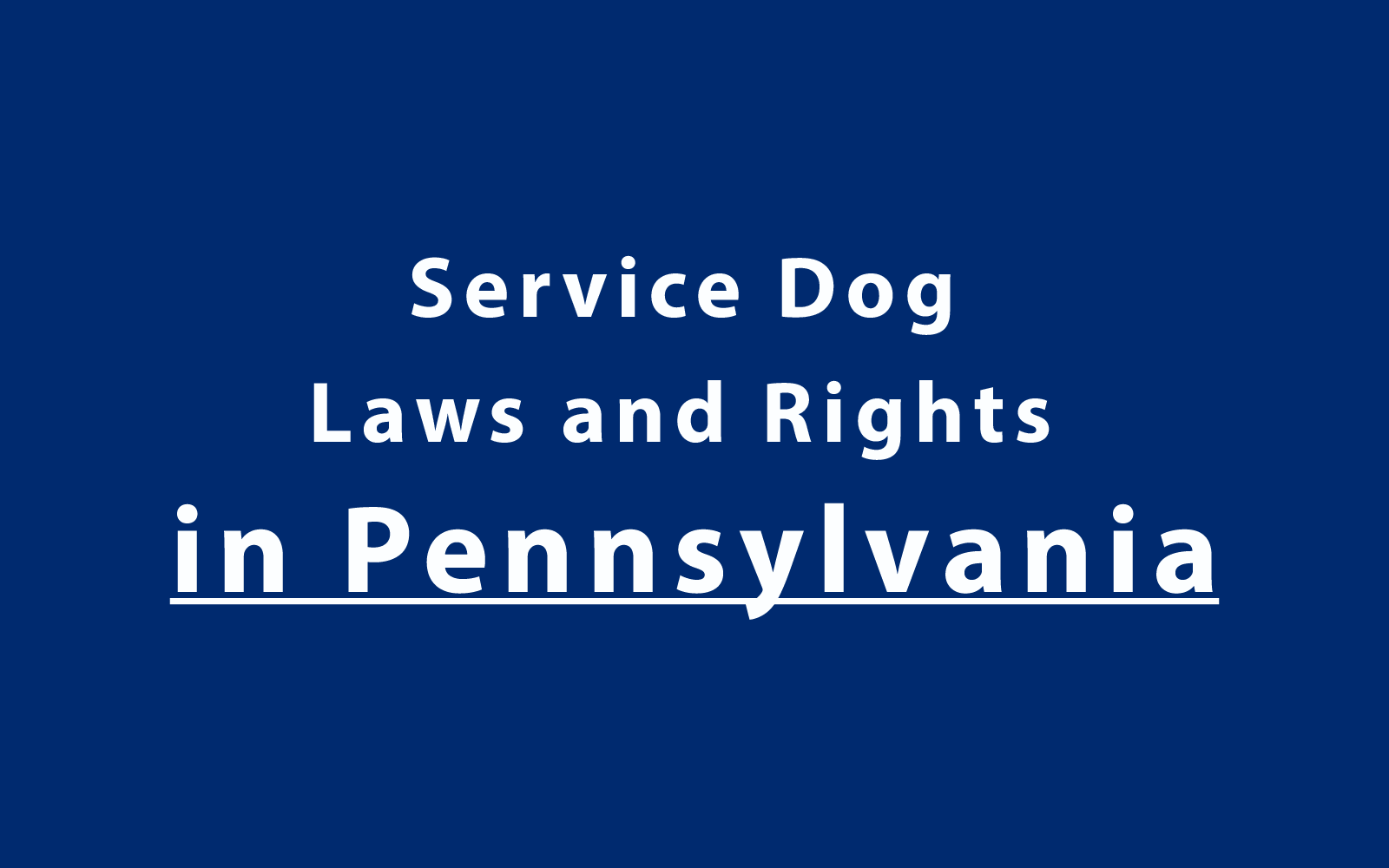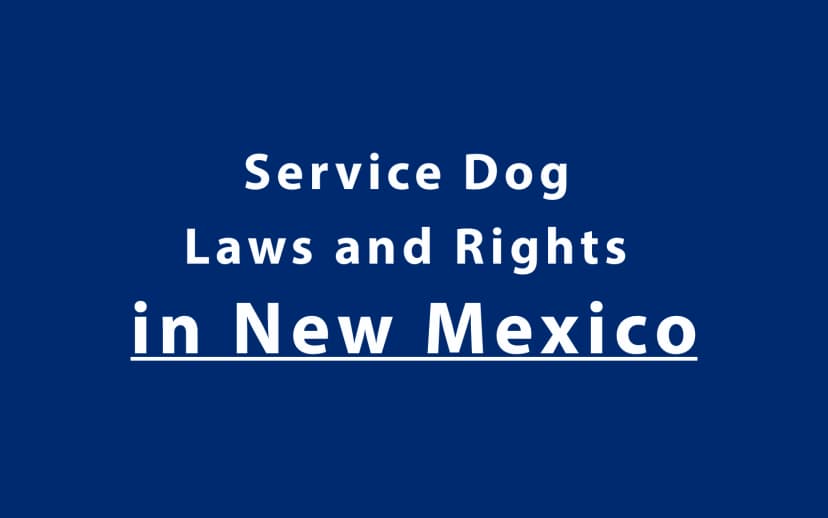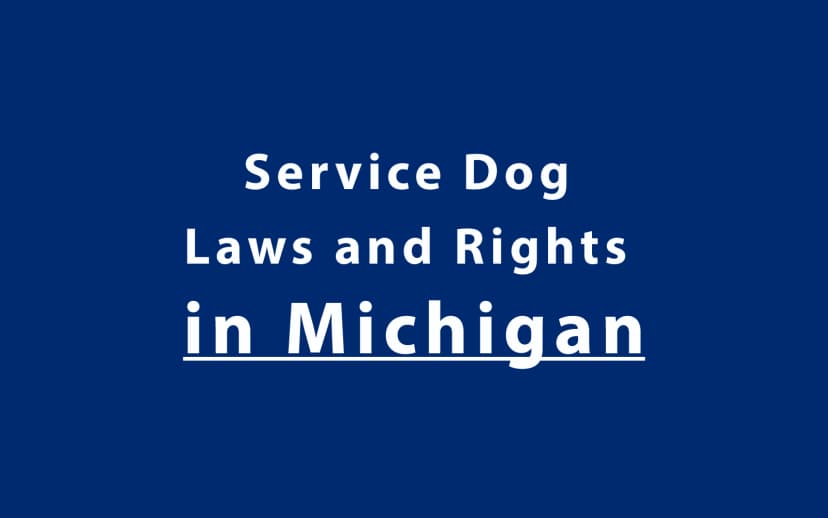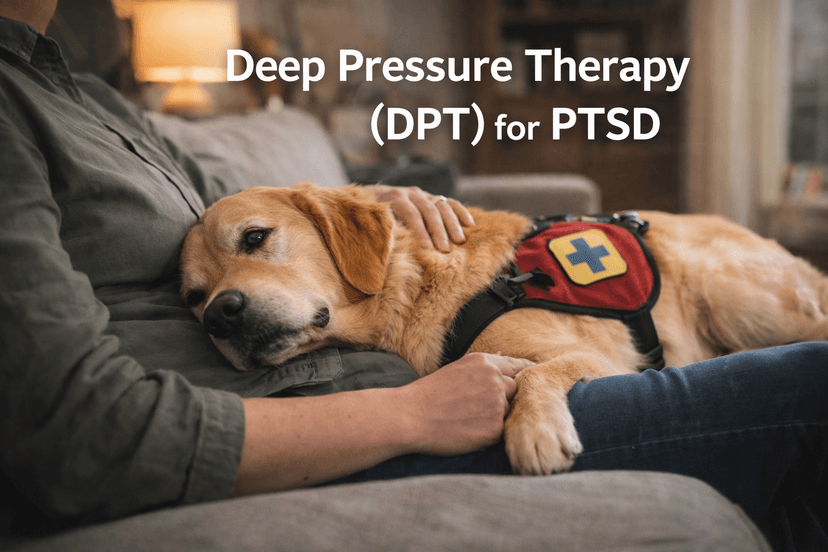Service Dog Laws and Rights in Pennsylvania

Service dogs play a critical role in the lives of individuals with physical, psychiatric, and sensory disabilities. These specially trained dogs provide independence, safety, and companionship. However, to fully benefit from a service dog, it is essential for handlers and the public to understand the legal rights and responsibilities that apply in their state.
In Pennsylvania, service dog laws reflect a combination of federal protections and state-specific regulations that help ensure equal access and fair treatment for individuals with disabilities. This 2025 guide breaks down everything you need to know about service dog laws and rights in the Keystone State.
What Qualifies as a Service Dog in Pennsylvania
Under the Americans with Disabilities Act (ADA), a service dog is defined as a dog individually trained to perform tasks or work directly related to a person’s disability. The Pennsylvania Human Relations Act (PHRA) aligns closely with the ADA and affirms these rights statewide.
Service dogs can assist individuals with:
• Guiding the blind or visually impaired
• Alerting the deaf or hard of hearing
• Providing mobility assistance
• Detecting seizures or blood sugar changes
• Interrupting self-harming behaviors (e.g., psychiatric service dogs)
Importantly, emotional support animals (ESAs) and therapy animals are not considered service dogs under Pennsylvania or federal law, as they are not trained to perform specific tasks.
Public Access Rights in Pennsylvania
The ADA guarantees service dog handlers the right to bring their trained service dogs into places open to the public, including:
• Restaurants and grocery stores
• Retail shops and malls
• Hotels and motels
• Parks and libraries
• Government offices and polling places
• Public transportation
Pennsylvania enforces these rights through its Human Relations Commission (PHRC), which protects individuals with disabilities from discrimination.
What businesses can ask:
1. Is the dog a service animal required because of a disability?
2. What work or task has the dog been trained to perform?
They may not ask about the person’s disability, require documentation, or demand a demonstration of the dog’s tasks.
Handlers must ensure their service dogs are well-behaved, housebroken, and under control at all times. If the dog is aggressive or disruptive, access may be legally denied.
Housing Rights Under the FHA in Pennsylvania
Under the federal Fair Housing Act (FHA), individuals with service dogs or ESAs have the right to request reasonable accommodation in any type of housing—even those with “no pets” policies.
Key protections include:
• Landlords cannot charge pet fees, deposits, or impose breed or size restrictions.
• Housing providers may request documentation if the disability or need for the animal is not obvious.
• Required documentation should only verify the disability and the need for the assistance animal.
In Pennsylvania, both the FHA and the PHRA protect tenants with disabilities. Denial of reasonable accommodations can be reported to the U.S. Department of Housing and Urban Development (HUD) or the PHRC.
Employment Rights for Service Dog Handlers
Title I of the ADA prohibits discrimination against individuals with disabilities in the workplace. In Pennsylvania, the PHRA provides additional support.
Employees may request to bring a service dog to work as a reasonable accommodation if the dog helps manage a disability.
How to request an accommodation:
• Submit a written request to your employer.
• Provide medical documentation if the disability or task is not obvious.
• Participate in an interactive process to determine feasibility.
Employers must grant reasonable accommodations unless doing so would impose an undue hardship. If a request is denied unfairly, individuals can file a complaint with the Equal Employment Opportunity Commission (EEOC) or PHRC.
Travel and Transportation Protections
Air Trave
The Air Carrier Access Act (ACAA) ensures that service dogs can accompany their handlers in the cabin of U.S. flights without extra fees.
Requirements include:
• Completing the U.S. DOT Service Animal Transportation Form
• Ensuring the dog is under control and well-behaved
• Following the airline’s additional procedures
Public Transit in Pennsylvania
Transit providers such as SEPTA (Philadelphia), Pittsburgh Regional Transit, and Amtrak must allow service dogs on buses, trains, and subways.
Taxi companies, rideshare services (Uber, Lyft), and private transportation operators must also comply with ADA requirements.
Access in Schools and Educational Institutions
K–12 Schools
Under the Individuals with Disabilities Education Act (IDEA) and Section 504 of the Rehabilitation Act, public schools in Pennsylvania must accommodate students with service dogs.
Schools can ask for:
• Assurance that the dog is trained
• Confirmation of the student’s disability-related need
The school cannot require service dog certification, but the handler is responsible for the dog’s care and behavior during school hours.
Higher Education
Colleges and universities must provide access to service dogs across campuses, including classrooms, dorms, and dining halls.
Students should register with the campus disability services office and may need to provide information about the dog’s role.
Training and Registration in Pennsylvania
Neither the ADA nor Pennsylvania law requires that a service dog be professionally trained or officially registered. Handlers may train their own service dogs.
However, voluntary registration can:
• Help reduce public misunderstandings
• Provide documentation for housing or travel situations
• Offer peace of mind when navigating public spaces
At AssistanceDogPartners.org, we provide:
• Online self-paced service dog training
• Optional ID cards and vests for convenience
Training should focus on obedience, reliability in public, and specific task performance.
Service Dog Fraud and Misrepresentation in Pennsylvania
Falsely claiming a dog as a service animal is illegal in Pennsylvania under 18 Pa. C.S. § 7325.
Penalties include:
• Fines
• Community service
• Misdemeanor charges
Fraud not only disrespects the law, but also undermines the legitimacy of true service dog teams. Examples of misrepresentation include:
• Using vests or ID tags on untrained pets
• Claiming an ESA or therapy dog is a service dog
Violations can be reported to law enforcement or local agencies.
Pennsylvania Resources for Service Dog Handlers
• Pennsylvania Human Relations Commission (PHRC): https://www.phrc.pa.gov
• Disability Rights Pennsylvania: https://www.disabilityrightspa.org
• U.S. Department of Housing and Urban Development (HUD)
• Local service dog trainers in Pittsburgh, Harrisburg, Philadelphia, and Allentown
Frequently Asked Questions
Is service dog registration required in PA?
No. Registration is optional, not required.
Can landlords deny a service dog in no-pet housing?
No. Service dogs are exempt from pet policies.
Are psychiatric service dogs protected in PA?
Yes. They are considered service dogs under ADA and PHRA.
Can businesses ask for certification?
No. Only two ADA-compliant questions are allowed.
Can I train my own service dog?
Yes. Self-training is legally permitted.
Conclusion
Service dog handlers in Pennsylvania are protected by both federal and state laws across various aspects of life—including public access, housing, education, employment, and transportation.
By understanding these rights and responsibilities, you can confidently advocate for yourself and your service dog. If you’re ready to begin training, complete your Public Access Test, or obtain voluntary registration, AssistanceDogPartners.org is here to help.



